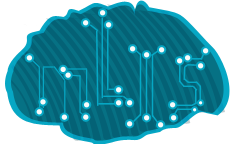
Dr. Dmitri E. Kvasov
DIMES, University of Calabria, ItalySpeech Title: Global optimization in machine learning: Metaheuristic vs. deterministic approaches
Abstract: Numerical global optimization plays an important role in algorithmic configuration to improve the generalization ability of machine learning techniques. Because of the high computational cost involved in this decision-making process, the main goal is to develop efficient global optimization algorithms that produce reasonably good and guaranteed solutions with a limited budget of function evaluations. The objective function in this case can be black-box, multiextremal, and non-differentiable thus precluding the use of descending schemes with derivatives. Derivative-free methods can be therefore particularly suitable to tackle these challenging global optimization problems and can be either of deterministic or stochastic (and particularly, metaheuristic) nature. Some of the methods of these two groups are briefly surveyed and their application in the machine learning field is discussed.
Biography: Assistant Professor in Numerical Analysis, DIMES, University of Calabria, Rende (CS), Italy; and Researcher (part-time contract) at the Institute of Information Technology, Mathematics and Mechanics, "Lobachevsky" State University of Nizhny Novgorod, Russia. Italian National Scientific Habilitation as Full Professor in Numerical Analysis (2018–2027) and in Operations Research (2021–2030). Education: Ph.D. in Operations Research (05/2006), Department of Statistics, University of Rome "La Sapienza", Italy. Candidate (Ph.D.) of Physico-Mathematical Sciences (12/2016), "Lobachevsky" University of Nizhny Novgorod, Russia. Graduated, with honours, in Information Systems (06/2001), Faculty of Computational Mathematics and Cybernetics, "Lobachevsky" University of Nizhny Novgorod, Russia. Graduated, with honours, in Computer Systems Engineering (04/2001), Engineering Faculty, University of Calabria, Italy. Research interests: Numerical analysis; Continuous global optimization and applications; High-performance and Infinity computing. List of papers includes more than 120 items (among them: 2 research books).
